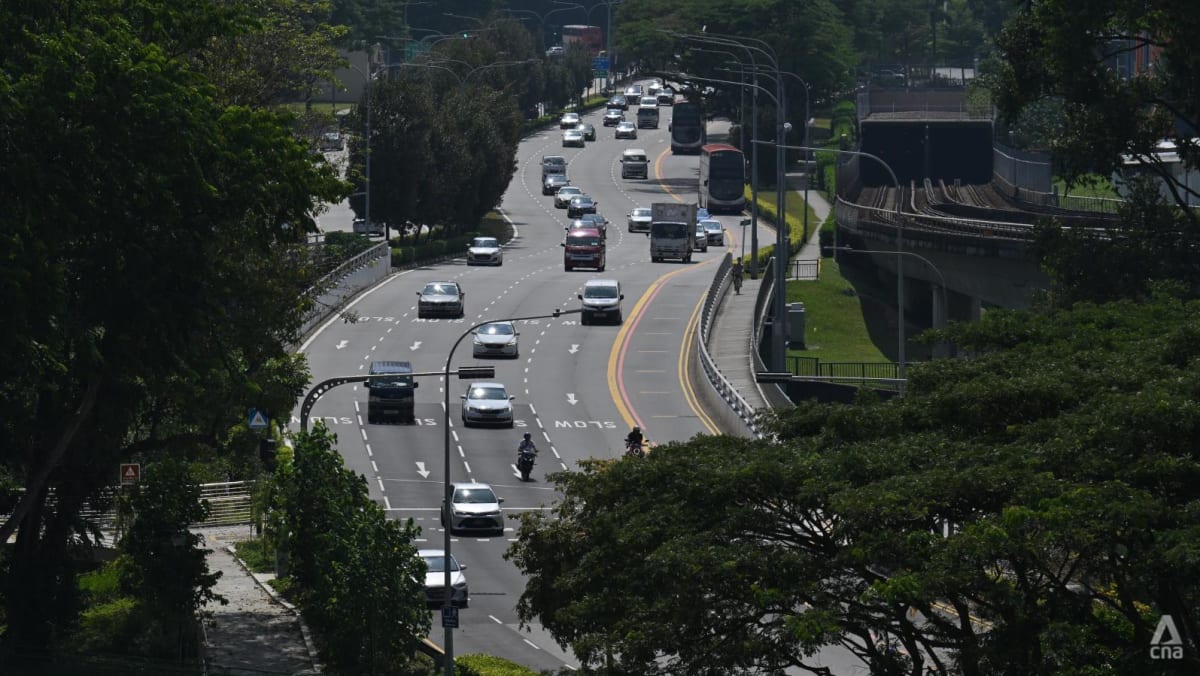Associate Professor Walter Theseira from the Singapore University of Social Sciences’ School of Business said demerit points are “more important” given that incomes are rising in Singapore.
“No matter how much money you make, getting a critical number of demerit points will result in a driving suspension, which is something that deters even very rich drivers,” he said.
“I expect the demerit point increase to actually be more important for many drivers in Singapore.”
Mr Bernard Tay, chairman of the Singapore Road Safety Council, echoed that view.
“You go out to eat, another S$100 is nothing nowadays,” he said.
The demerit point system is likely more effective since people would be concerned about that. People get a licence because they want to drive, and that can be taken away due to speeding offences, he added.
“What (they) want, you take it away, it’s the most painful. Money (can be earned) back.”
He also noted that a licence can also be revoked in serious cases, which would mean the driver has to take a driving test again.
“The fear of losing their licence may be far more sobering than a fine,” said Mr Jonathan Wong, founder of Tembusu Law.
The demerit points accumulate and each violation brings the driver closer to suspension or revocation, which could disrupt their daily routines and livelihoods, he said.
RIGHT TIME TO INCREASE PENALTIES
Mr Tay added that the move to introduce stiffer penalties is timely, as speeding violations have increased in recent years.
In 2024, there were 191,931 cases, a jump of 64.8 per cent compared to the previous year. Part of the reason may be that more cameras have been deployed, but either way, speeding puts road users at risk, he said.
The police said in their annual road traffic statistics report that 33.1 per cent of fatal accidents last year were due to speeding, up from 24.4 per cent in 2023.
“It’s the right time to send a message,” Mr Tay said, adding that education can only go so far, and the last resort is to change the rules to make the penalties tougher.
As roads get busier, the law has to adapt and stay relevant, said Mr Wong of Tembusu Law.
“I think the increase in fines and demerit points aims to strike a balance; firm where it needs to be, especially for high-risk behaviours like speeding, but still trying to be grounded in fairness,” he said.
Assoc Prof Theseira also said it was important to increase fines even if demerit points are more important.
Low financial penalties when incomes are high are less effective, especially if they are outweighed by the benefits of breaking the rules, he said.
“For example, low parking fines are ineffective if it is cheaper to take a chance parking illegally than to pay for expensive parking. So revising the fine level upwards periodically is necessary to keep pace with rising incomes.”
He noted that in some countries such as Finland, fines are pegged to the income of the driver. “Richer people pay more for the same offence.”
DRIVING WITH MORE CAUTION
Drivers previously caught speeding said the increased penalties would make them more careful about staying within the speed limit.
“I’ll definitely be more careful. Increasing the number of demerit points and having harsher fines will ensure people are more careful,” said 57-year-old Mr Gopal.
He was caught driving 12kmh over the speed limit near Thomson Road and initially fined over S$100. The fine was dismissed after he appealed, as he had a “clean record”, the real estate agent said.
Another driver, Mr Ang, who once exceeded the speed limit by less than 20kmh at Ang Mo Kio, said the new regulations are good for those who are new on the road and taxi drivers.
“The new regulations are good for new drivers because a lot of them are reckless. Or those old taxi uncles. They drive long hours and most of the time they’re not cautious on the road,” said the 30-year-old salesman, who has been driving for almost a decade.
He was caught speeding while rushing between back-to-back appointments but was let off with a warning. Since then, he has become more cautious, especially now that he knows where the speed cameras are located.
He also tries to spot Traffic Police officers using cameras for anti-speeding operations. “I roughly know where those snipers will be … so I will slow down.”
